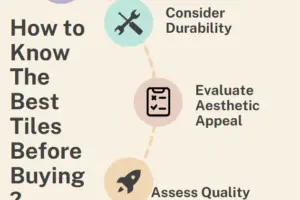
Earwigs are small, brown insects that have a pair of pincers at the end of their abdomen.
They are often found in gardens, basements, or under rocks and logs.
They may look scary, but are they really dangerous?
In this article, we will reveal the truth behind the myths and rumors about earwigs, and give you some tips on how to get rid of them if they invade your home.
Should I be worried about earwigs?
The short answer is no.
Earwigs are not dangerous to humans or pets.
They do not bite, sting, or transmit diseases.
They do not crawl into your ears and lay eggs in your brain, as some people believe.
This is a myth that dates back to ancient times when people thought that earwigs could cause deafness or insanity.
Earwigs are mostly harmless insects that feed on plants and other insects.
They use their pincers for defense and mating, not for attacking people.
They may pinch you if you handle them roughly, but their pincers are weak and cannot break your skin or draw blood.
What happens if an earwig bites you?
As we mentioned before, earwigs do not bite humans.
However, they can pinch you with their pincers if they feel threatened or disturbed.
This may cause some pain, redness, or swelling at the site of the pinch, but nothing serious.
If you get pinched by an earwig, you should wash the area with soap and water to prevent infection.
You can also apply ice or a cold compress to reduce inflammation and discomfort.
You can also use an over-the-counter pain reliever or anti-inflammatory medication if needed.
Can an earwig hurt you?
Earwigs are not venomous or poisonous, so they cannot hurt you in that way.
However, they can cause some damage to your plants and crops if they infest your garden.
Earwigs can eat holes in leaves, flowers, fruits, and vegetables, especially corn and lettuce.
They can also spread fungal diseases or pests to your plants.
To prevent earwigs from harming your plants, you can use some natural or chemical methods to repel or kill them. Some natural methods include:
- Sprinkling diatomaceous earth around your plants. This is a fine powder made from fossilized algae that can dehydrate and kill earwigs.
- Placing traps made from cardboard rolls, newspaper, or plastic containers filled with oil or beer. Earwigs will crawl into these traps and drown or get stuck.
- Encouraging natural predators such as birds, frogs, lizards, or spiders to feed on earwigs.
- Removing any debris, mulch, or wood piles that provide shelter and moisture for earwigs.
Some chemical methods include:
- Spraying insecticidal soap or neem oil on your plants. These are organic products that can kill earwigs on contact without harming your plants.
- Applying synthetic pesticides such as carbaryl or permethrin around your plants. These are more effective but also more toxic to humans, pets, and beneficial insects.
- Calling a professional pest control service if you have a severe infestation that you cannot handle yourself.
What are earwigs a warning of?
Earwigs are not a warning of anything sinister or supernatural.
They are simply insects that are looking for food and shelter in moist and dark places.
However, they can be a warning of some underlying problems in your home or garden that need to be addressed.
For example, if you find earwigs in your house, it may mean that you have water damage, leaks, cracks, or gaps that allow moisture and pests to enter.
You should inspect your house for any signs of structural damage and repair them as soon as possible.
If you find earwigs in your garden, it may mean that you have poor drainage, overwatering, over-mulching, or a lack of diversity in your plants.
You should improve your soil quality, water management, and plant selection to create a healthy and balanced ecosystem.
Conclusion
Earwigs are not dangerous to humans or pets.
They do not bite, sting, or crawl into your ears.
Earwigs may pinch you if provoked, but this is not harmful or painful.
They can cause some damage to your plants and crops if they infest your garden, but this can be prevented or controlled with natural or chemical methods.
Earwigs are not a sign of anything bad or evil.
They are just insects that are adapted to live in moist and dark environments.
However, they can be a sign of some issues in your home or garden that need to be fixed.
If you found this article impressive follow our blog for more articles as shown below:



















































